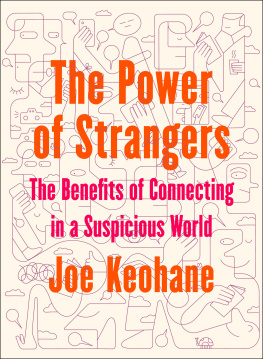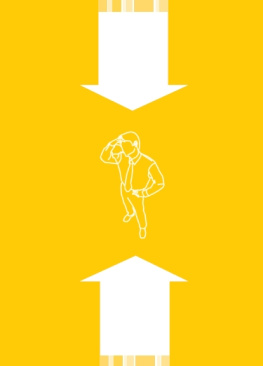Copyright Victor Lugala, 2017
ISBN: 978-0-9876141-4-8
Published by: Africa world books, Perth, Australia
Edited by Cheryl Bettridge AE and Catherine Schwerin
All rights reserved
No parts of this book may be reproduced or transmitted in any form or by any means, graphic, electronic, or mechanical, including photocopying, recording, taping or by any information storage retrieval system, without permission in writing from the author.
Design and typesetting of text: All In One Book Design
Cover design: Rob Rooker
Acknowledgements
This story of love and agony is a true survivor. A thief stole the few pages of the initial draft. Professor Taban lo Liyong, who taught me many things, told me not to cry over spilt milk, but to scrape the bottom of the pot to move the story forward. Then Professor Mairi John Blackings read the finished draft. If the thief must be put to shame, it is, thanks to Atem Yaak Atem, whose emails from Australia always nudged me to write longer stories like this, for he too, tasted the pudding at the preparatory stage.
I t is 1992, the year that God wept for Juba . A dark curtain descended on the town and red terror threatened to suffocate the civilian population. There was widespread starvation, fear, hatred, suspicion, and quick death. Human life was of little value, if not valueless. In the main ghost house men stripped half naked and emaciated beyond recognition were chained to their fate, waiting forlornly, dejectedly, for the dark hour, when the executioners hammer would crush and shatter their skulls. Their graves no living creature could identify with certainty without running mad from the sight of a rugged hill of bones, old and new.
~
It is wartime and Juba airport is a sardine can of humanity. These are civilians at the precipice of life, for they will soon become refugees in their own country. Here they are, waiting to board a cargo plane to Khartoum, the countrys capital city, and from there, if they are lucky enough, they will proceed beyond the countrys borders, to other peaceful lands where they could hopefully live happily while nursing sweet memories of home, a home that was now occupied by soldiers of fortune.
Women cuddling breastfeeding babies, young people in their prime and sick-looking people burdened with earthly troubles locked in their heads were all waiting to travel by air, most of them for the first time. They were running away from a town they hated to leave but had no choice to live in, either.
The cargo plane was the only means of transport linking Juba in the south and Khartoum in the north. From the north the plane transported soldiers of fortune, mercenaries, guns, ammunition, bad luck and explosives to feed the hungry war theatre in the south. The cargo plane went back to the north with a human cargo, so to speak, including wounded soldiers and sometimes raw teak looted from the forest reserves. The passengers sat on the floor of the plane like bags. They boarded the cargo plane free because they could not afford an air ticket, let alone food, which had become scarce. In a way the military regime wanted to hold these people hostage of the system by encouraging them to seek refuge in the north rather than them running or escaping to the bush behind rebel lines.
On the runway of the airport a Boeing 707 cargo plane squatted like a toad. Some military cargo was hurriedly offloaded into military trucks that drove away very fast. The airport lounge was humid and musty. The passengers sweated profusely. The women fanned their little ones with crumpled pieces of cloth or headscarves. Some of the old men scraped the sweat from their foreheads with bent forefingers. The passengers eyes and minds were transfixed on the huge toad that would carry them many miles away, to Khartoum, into internal refuge, or beyond.
Amidst the din a casually dressed skinny northern Sudanese with a mop of dark hair and a heavy moustache briskly walked into the lounge. He carried some papers and a red megaphone. With the blazing eyes of a snake he quickly scanned the black faces in the lounge. Without wasting time he blew air into the megaphone. The megaphone crackled.
Attention, attention, everybody! shouted the man in a croaky voice as if he had a hangover. His Arabic sounded typically Khartoumish.
If you are travelling to Khartoum and you are sure your name is on the list, listen! And listen carefully. When I call your name and you know it is your name, move quickly and form a straight line near the main exit, ready to board. If your name is not on my list you have no business loitering around.
When the man called the names of the passengers there was subdued silence, except for children coughing or sneezing or crying for a mothers teat. The desperate-looking people wanted to be sure that their names were on the list. As soon as the man finished calling out the names of the passengers, a long, crooked queue of passengers bearing pitiable hand luggage had already formed. They were ready and anxious to board the cargo plane. Some of the people were sweating nervously. There was, however, a group of young men standing, murmuring and wondering why their names were not on the list. The man with the heavy moustache noticed them. He looked at them hard, threateningly, then pointed at them, his index finger almost shaking. They were five in all. They did not know who the man was pointing at, so they looked at each other askance.
Blue shirt, shouted the man, Step out!
The young man wearing the blue shirt carried a rucksack on his back like a fat baby. He timidly walked with unsteady steps to meet the man who looked like Mr Bad News.
Whats your name? the man asked.
Riti, said the young man in the blue shirt.
The man quickly raced his bloodshot eyes through the list and announced: Riti. Riti. Riti does not exist in this world.
He gave Riti a serious look as if expecting a reply.
Were you here yesterday? he asked.
Riti nodded.
Were you here the day before?
Riti nodded again.
Were you here last week?
Riti nodded again, this time his chin rose and fell on his chest, shaking.
Look Mr blue shirt, said the man, I dont want to see your face again anywhere near the airport, understand? Get lost!
The legacy of war was the nightmare suffered by southern Sudanese men in Juba. If they survived death they lived on borrowed time. They suffered mental torture, and if they didnt go mad their manhood was crushed. Love and sex, however, were the delicate and precious readily available commodities that lived side by side with war. Palliatives, if you like. Love and sex were the medicine of the heart shared by enemies and their victims alike. And jealousy was rife. The civilian men who decided to remain in Juba during the war buried their heads in the warm bosoms of women and girlfriends. Some of the vile women who knew the vulnerability of men used sex as a weapon of war.
~
The building housing Juba Times weekly newspaper was situated along Government Road, about two kilometres from downtown Juba. The office was nestled among neem trees, surrounded with a creeping hedge. There were a few cacti, jacaranda and acacia trees scattered in the compound. The flowerbed that had some white lilies, violets and bougainvillea cried for the caring hands of the gardener who never returned to work a couple of months ago. The photography section of the newspaper was on the first floor of the one-storey colonial building. Ritis desk was close to a large, Gothic window overlooking Juba airport. The window gave a panoramic view of the expansive landscape beyond the airport. In the wet season the landscape was lush, except for the airport runway which was a paste of black tar. During the dry season a large flock of heron perched in the mango trees by the river Nile, near Gabat slum, home to the lepers who begged for alms in the streets by day and pushed opium in their shacks by night. During the hot season the Gothic window inhaled some breeze to cool the photography section.
















